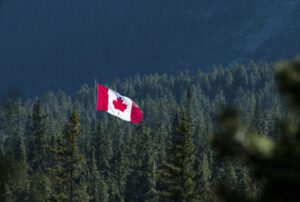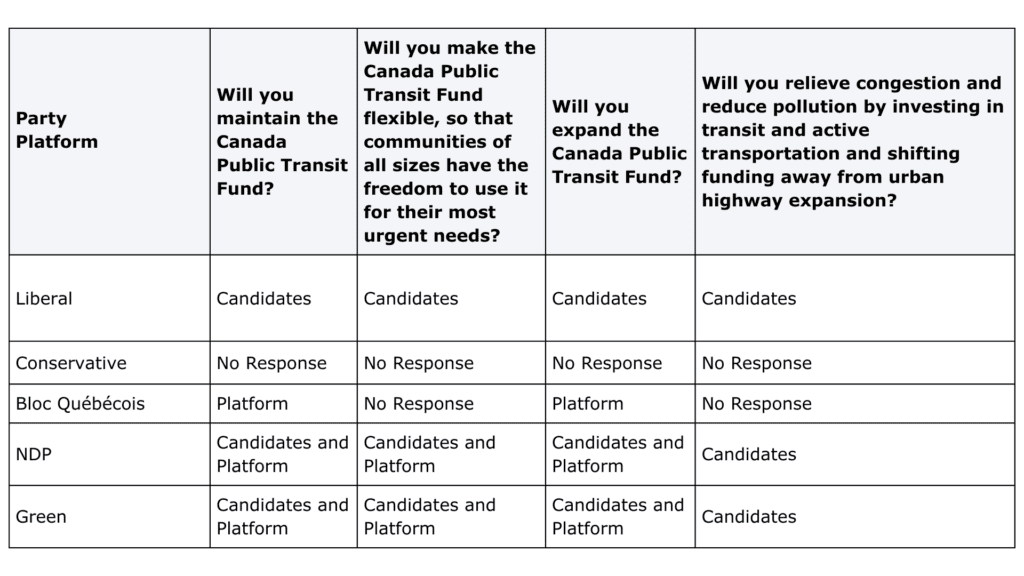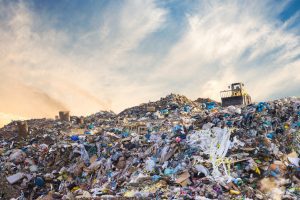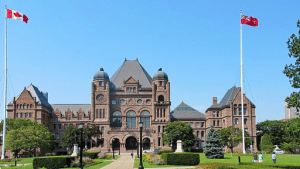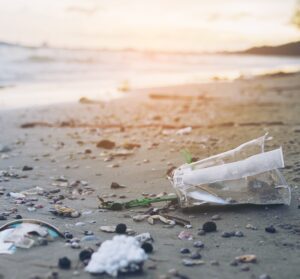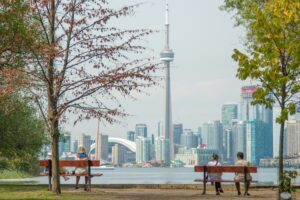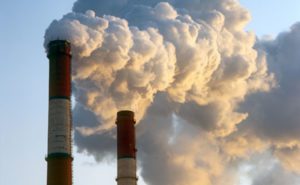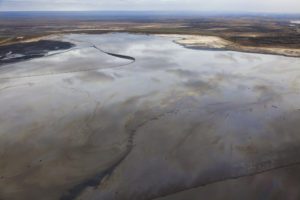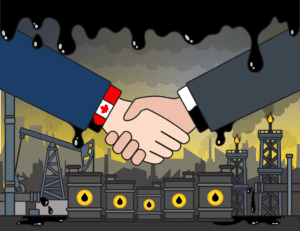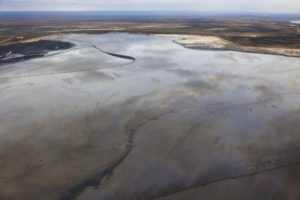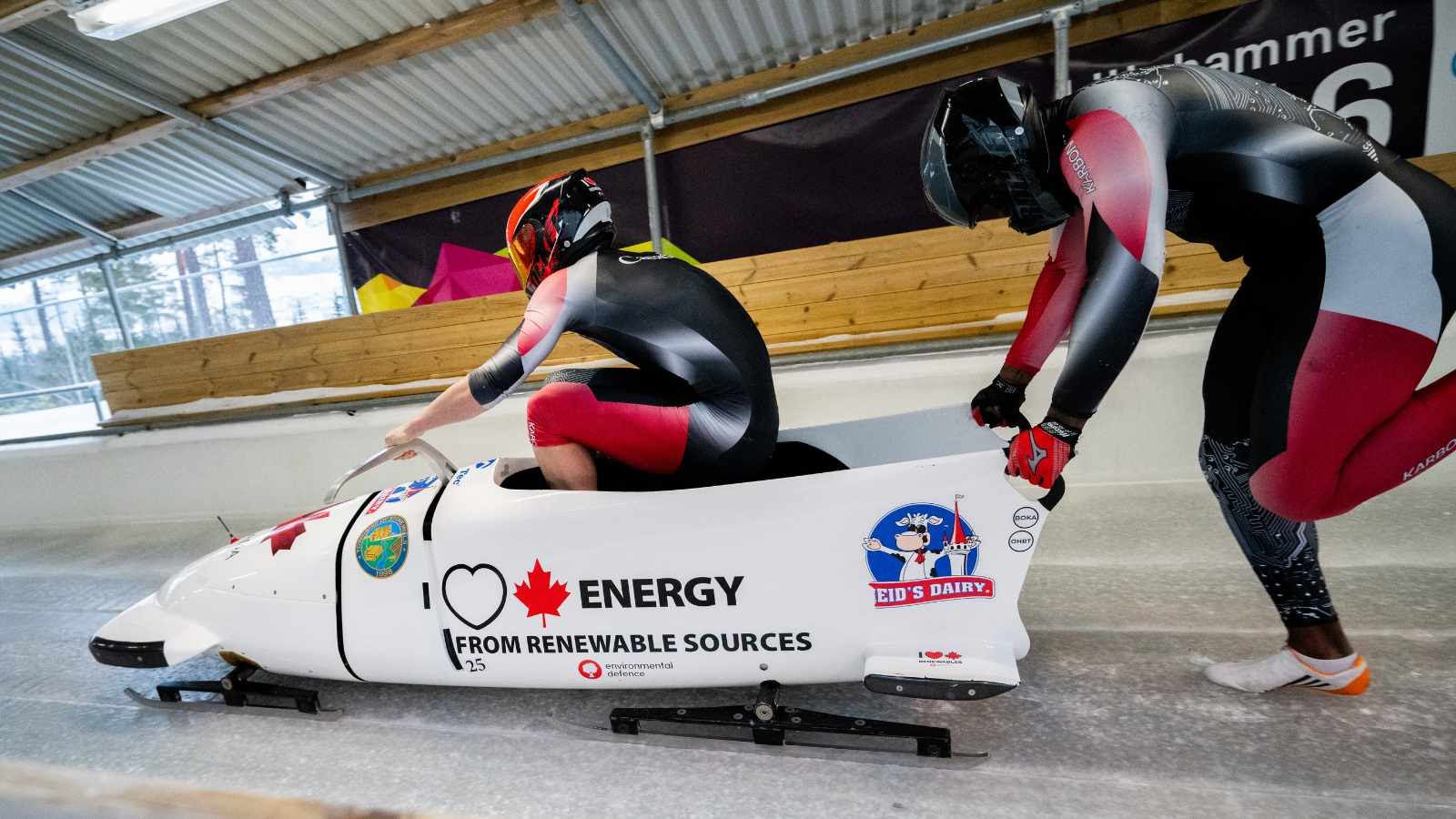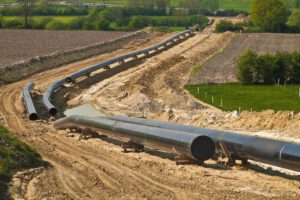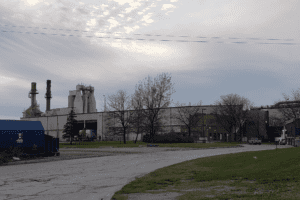Toronto | Traditional territories of the Mississaugas of the Credit, the Anishinaabeg, the Haudenosaunee, and the Wendat – From April 19 to 27, environmental groups across Ontario will host events in their communities as part of Yours To Protect Week 2025.
Yours to Protect Week helps people in Ontario find Earth Week events in their communities. This year there are more than 30 events ranging from rallies to film screenings, with Seniors for Climate hosting over a dozen.
“Seniors across Ontario are joining with more than 50 Seniors For Climate locations across Canada this Earth Day to push for faster and bolder action on climate change to protect the people and places we love from the consequences of burning too much oil, gas and coal,” said Seniors for Climate spokesperson David Smith. “There are reliable, healthier and less expensive alternatives to providing the energy we need.”
WHO: The Yours to Protect movement is a coalition of environmental and community groups fighting for better environmental policies in Ontario.
WHAT: Yours to Protect Week days of action, featuring more than 30 events including film screenings, community clean-ups and family-friendly fairs.
WHERE: Events will take place all across Ontario, from Thunder Bay to Niagara-on-the-Lake. A map of all events is available at environmentaldefence.ca/ytpweekend2025/
WHEN: April 19 to 27. Exact times and dates vary by location.
Beamsville
EcoFest – An Earth Day Event!
April 19 from 12 – 3 p.m.
The Fleming Centre, 5020 Serena Dr.
Description: Everyone is invited to celebrate Earth Day at this free family event! Meet with members of 10+ local environmental groups, find some native seeds to grow, learn more about the value of native plants and Lincoln’s new Urban Forest policies and possibly pick up a native tree to plant (by donation, if you are a Lincoln resident). There will also be a presentation at 1:15 p.m. titled “Birds! – Our Only Surviving Dinosaurs.”
Burlington
Earth Day at the Beach
April 19 from 9:30 a.m. – 2 p.m.
1094 Lakeshore Rd.
Description: Celebrate Earth Day with a meaningful day of family-friendly action, learning and community spirit! Drop in for all-ages fun and interactive hands-on activities such as pollinator-friendly seed ball-making and opportunities to share your eco-actions and hopes for the future.
Caledon
Repair Cafe
April 26 from 10 a.m. – 2 p.m.
Caledon Seniors Centre, 7 Rotarian Way
Description: Caledon residents, it’s time to gather your broken toasters, chipped mugs and torn pant hems! Caledon Reduces (a busy subcommittee of ecoCaledon) will run its Repair Café, offering you the opportunity to give your household items a second life and support a circular economy in Caledon.
Cambridge
Earth Day at Preston
April 26 from 10 a.m. – 2 p.m.
435 King St. E.
Description: Celebrate Earth Day with green activities, crafts and seeds to take home, including the chosen seed for One Seed One Community.
Collingwood
EarthFest 2025
April 27 from 10 a.m. – 12 p.m.
100 Minnesota St.
Description: Join us for the fourth annual EarthFest! Celebrate our planet and the incredible work being done to protect it! This free, family-friendly event brings together local environmental groups, live music, yummy eats, face painting and fun activities for all ages!
Fergus
Neighbourwoods Community Tree Planting Event
April 26 from 9 a.m. – 12 p.m.
Trestle Bridge Trail, Trailhead at 187 Beatty Line N.
Description: Help extend our urban forest, boost biodiversity and support a healthier, happier community.
Fonthill
Fourth Annual Rally for Earth Day Call for Action (AREA)
April 19 from 1 – 3 p.m.
Peace Park, 20 Market Sq.
Description: Saving our Wetlands, Indigenous drummers, local musician Jamie Snider and guest speakers. Bring your homemade signs. Dress for cool and wet weather.
Georgetown
The Halton Hills EcoFilm Fest
April 22 from 6:30 – 8:30 p.m.
9 Church St.
Description: The Halton Hills EcoFilm Fest will screen The Issue with Tissue – A Boreal Love Story.
Guelph
Insulate Your Wallet
April 22 from 2 – 3:30 p.m.
683 Woolwich St.
Description: Learn how to make energy-efficient improvements through home improvement grants and loans.
Preparing for Resistance: Lessons From Past and Present Struggles
April 25 from 7 – 9 p.m.
42 Carden St.
Description: The true story of a rural community pushed to the limit to protect their river. Learn what resistance on the ground really looks like. How would we measure up? Film screening of Blue Heart and panel discussion with seasoned campaigners about lessons learned.
Huntsville
Later Is Too Late – Huntsville Film Screening
April 22 from 1 – 2:30 p.m.
7 Minerva St. E.
Description: Screening of the documentary film Later Is Too Late.
Kingston
Seniors For Climate: Confederation Park Event
April 26 from 1 – 4 p.m.
Confederation Park – 216 Ontario St.
Description:The Confederation Park event is organized by Indigenous musician and activist Yessica Rivera-Belsham together with Sustainability Kingston. There will be information tables, art activities and an Indigenous drum circle.
Seniors For Climate Kingston Event
April 27 from 11 a.m. – 4 p.m.
303 York St.
Description: There will be information tables, speakers, musicians and performers and a screening of the 22-minute version of the documentary Later is Too Late. Activities include the Kingston bucket drummers, demonstration on permaculture and food sovereignty gardens, a bike repair demonstration and information on alternatives to cars.
Kitchener
Reep Open House and Taking on Climate Change Workshop
April 22 from 5:30 – 7:30 p.m.
20 Mill St.
Description: Join us from 5:30 – 6:30 p.m. for an informative open house at the Reep House, where you can learn everything you need to know about sustainable solutions for your home. From 6:30 – 7:30 p.m., ClimateActionWR will be hosting a special Earth Day “Taking on Climate Change” workshop to learn more about climate change and local climate solutions
London
Earthfest
April 26 from 11 a.m. – 4 p.m.
251 Dundas St.
Description: We will be taking part in EarthFest. We will have a table with activities for children and a petition for adults to sign as well as leaflets and handouts. We plan to show the trailer to climate documentary film Later Is Too Late at our table.
Mississauga
Green Drinks Mississauga
April 23 from 6 – 8 p.m.
The Rec Room at Square One, 100 City Centre Dr. #1-705
Description: Share a drink and chat with other Mississauga environmentalists in the bar area of Rec Room at Square One.
Napanee
Earth Day 2025
April 22 from 3:30 – 5:30 p.m.
Large Lounge – Best and Bash Arena – 16 McPherson Dr.
Description: Screening of the documentary Later Is Too Late. Music by Stephen Bruce Medd. All federal election candidates in our riding have been invited to share their party’s climate change policies.
Niagara-on-the-Lake
Renewable Energy Fair
April 22 from 7 – 8 p.m.
14 Anderson Lane
Description: We are inviting everyone to attend an information exchange about renewable energy and Ontario home efficiency rebates.
Oshawa
Later Is Too Late – Oshawa Film Screening
April 22 from 6 – 8 p.m.
2000 Simcoe St. N. – Rm UA 1220, Science Building
Description: Screening of the documentary Later Is Too Late.
Ottawa
Our Power Our Planet – Working Together for the Next Generations
April 23 from 12:30 – 3 p.m.
Knox Presbyterian, 120 Lisgar St.
Description: Cohosts Kitigan Zibi Anishinabeg Land Guardians and MPP Catherine McKenney will present.
Owen Sound
Earth Day Grey Bruce
April 26 from 11 a.m. – 3:30 p.m.
1st Ave. W. between 8th and 9th Streets
Description: We invite everyone in our diverse community to take part in a playful, child-friendly event, which includes a parade, live music, art, crafts, dance and poetry. There will be booths offering information and resources on greener living, gardening, regenerative farming, mental health, nature groups and initiatives for climate action.
Pelham
Steve Bauer Trail Earth Week Cleanup
April 14 from 9:30 a.m. – 12 p.m.
Entrance to Steve Bauer Trail, on Quaker Rd., off Welland Rd. West side at the corner of Pelham St. and Welland Rd., second street on left (south side)
Description: Gloves, boots, rainy weather gear may be necessary, as well as tools to pick up garbage and a smile for the camera.
Perth
Perth Festival of the Maples
April 26 from 10 a.m. – 4 p.m.
84 Gore St.
Description: Climate Network Lanark and Seniors for Climate – Perth invite you to join us for a flash mob dance at the Perth Festival of the Maples.
Port Rowan
Later Is Too Late – Port Rowan Film Screening
April 22 from 2 – 5:30 p.m.
115 Front Rd.
Description: Screening of the documentary Later Is Too Late, guided walk, gardening demo, native plant sale and local conservation vendors.
Stratford
Earth Day Street Party
April 27 from 11:30 a.m. – 2 p.m.
Factory 163, 163 King St.
Description: A day of food, music, giveaways, art and eco-community!
New Tecumseth
Seniors For Climate New Tecumseth
April 30 from 6:30 – 8:30 p.m.
Circle Theatre , 19 Victoria St. E.
Description: A free screening of the award-winning documentary Plastic People, followed by a panel discussion with environmental health experts.
Thornbury
Community Clean-Up
April 26 from 2 – 4 p.m.
The Blue Mountains Townhall, 32 Mill St.
Description: Community clean up for the town of The Blue Mountains.
Thunder Bay
Earth Day Celebration
April 22 from 4 – 8:30 p.m.
Lunan Hall, St. Paul’s United Church, 349 Waverley St.
Description: Crafts, games and potluck from 4-7 p.m.; Screening of the documentary Later Is Too Late at 7 p.m.
Toronto
For the Necessities of Life
April 26 from 1 – 4 p.m.
Allan Gardens (Jarvis St. at Carlton St.) – Northwest section
Description: Speakers, music, street theatre and a kids table. We are advocating for the Canada we want — with a healthy and sustainable environment, clean air, water, food, housing, work for all, Indigenous rights and justice for equity-seeking groups.
Waubaushene
Waub/TransCanada-Tay Trail Litter Day
April 27 from 9 a.m. – 5 p.m.
22 Old Cottage Lane (litter bag pick up)
Description: Pick up two bags at 22 Old Cottage Lane (or use your own). Fill the bags with recycling and trash. Drop the bags at rally points. Suggested equipment: work gloves, mask.
Wasaga Beach
Earth Week Shoreline clean up
April 27 from 1 – 3 p.m.
Beach Area 2 at Wasaga Beach meeting at the 5th street parking lot
Description: Wasaga Beach Climate Action Team, in partnership with Georgian Bay Forever, holds an annual Earth Week Shoreline clean-up.
Find more information about Yours to Protect Weekend.
ABOUT ENVIRONMENTAL DEFENCE (environmentaldefence.ca): Environmental Defence is a leading Canadian advocacy organization that works with government, industry and individuals to defend clean water, a safe climate and healthy communities.
– 30 –
For more information or to request an interview, please contact event contacts listed above or:
Cecilia Stuart, Communications Manager
media@environmentaldefence.ca
The post Ontarians of Every Generation Rally for Yours to Protect Week 2025 appeared first on Environmental Defence.
This post was originally published on Environmental Defence.
